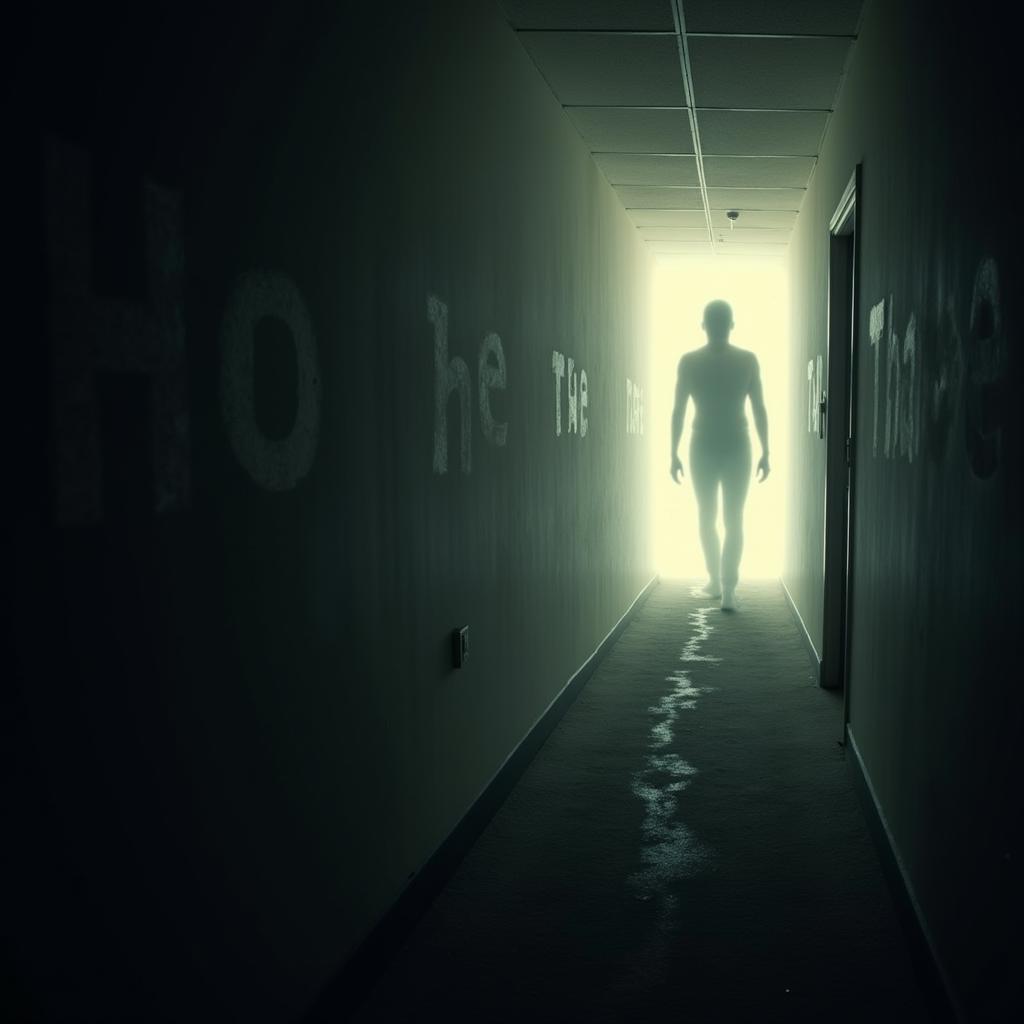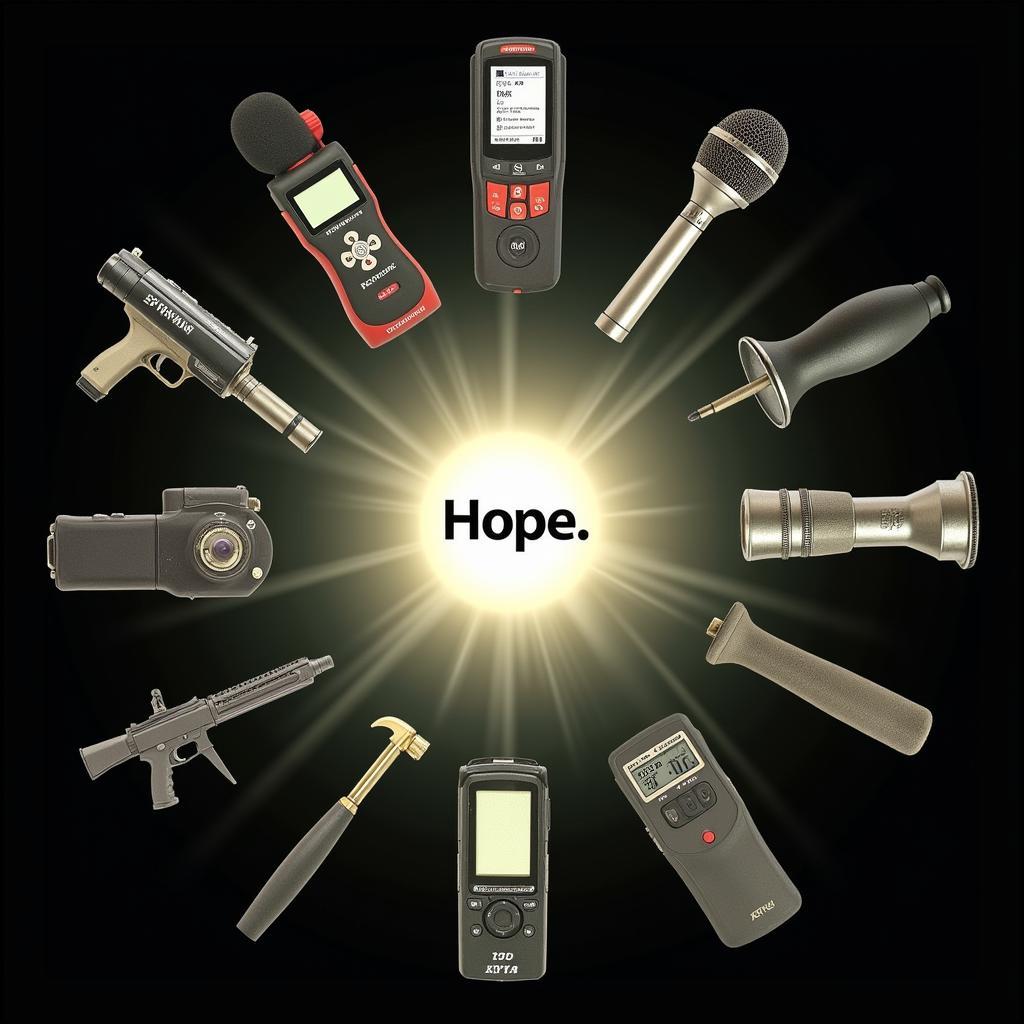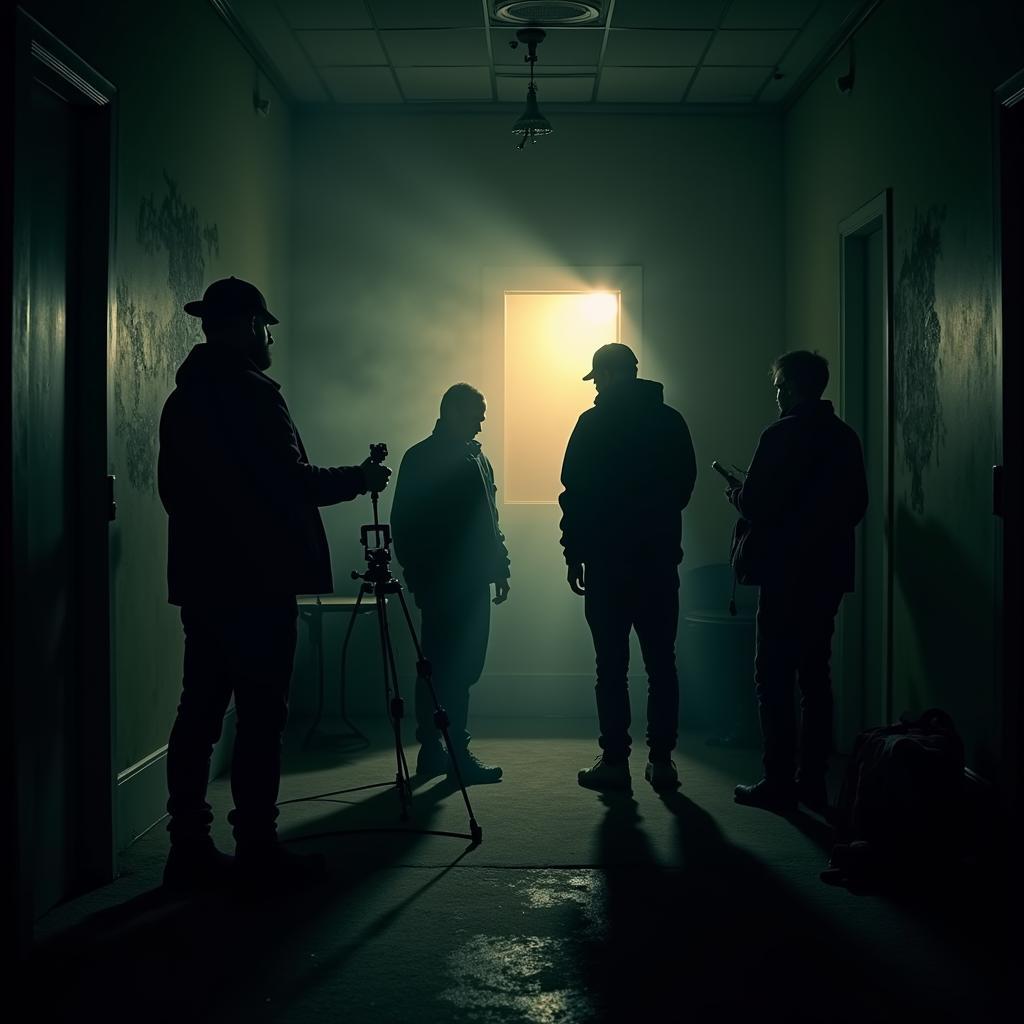The realm of paranormal research often delves into the unexplained, seeking answers to questions that have baffled humanity for centuries. One intriguing avenue within this field is “Hope Research.” This unique area of study explores the potential influence of hope, belief, and positive expectation on paranormal phenomena.
The Interplay of Hope and the Paranormal
While conventional science might approach such a concept with skepticism, Paranormal Research acknowledges the intricate connection between the mind and the unknown. Could our deepest hopes and beliefs somehow influence or even manifest paranormal experiences?
 Hope and Paranormal Activity
Hope and Paranormal Activity
Some researchers posit that a heightened emotional state, like that experienced when we cling to hope, might act as a conduit to the paranormal realm. This theory suggests that strong emotions, particularly positive ones, could amplify psychic abilities or attract paranormal entities.
Hope Research: Methodologies and Challenges
Investigating the impact of hope on paranormal activity presents unique challenges. Unlike traditional scientific experiments, controlling for variables like personal beliefs and emotional states proves incredibly difficult.
 Paranormal Research Equipment and Hope
Paranormal Research Equipment and Hope
Despite these hurdles, researchers employ a range of methods, including:
- Controlled Experiments: These often involve groups of individuals engaging in activities designed to induce hope or positive expectation, followed by attempts to influence or interact with alleged paranormal phenomena.
- Case Studies: Examining historical accounts and personal experiences of individuals who attribute paranormal encounters to moments of intense hope or faith.
- Subjective Reporting: Collecting data from individuals who claim to have experienced paranormal activity, analyzing their emotional state and belief systems leading up to and during the events.
The Power of Belief and the Placebo Effect
One compelling parallel to hope research lies in the well-documented placebo effect within the medical field. This phenomenon demonstrates the tangible impact of belief and expectation on physical health and well-being. Could a similar principle be at play in the realm of the paranormal?
If our minds can influence our physical bodies, is it such a stretch to imagine that our beliefs and hopes might also interact with the unseen forces of the universe?
 Paranormal Investigation Team and Hope
Paranormal Investigation Team and Hope
Hope Research: A Journey into the Unexplained
While hope research remains a nascent field within paranormal studies, it offers a fascinating perspective on the interplay between our inner world and the mysteries that lie beyond our understanding. As we continue to explore the uncharted territories of consciousness and the paranormal, perhaps hope itself will illuminate the path towards unraveling the enigma of the unknown.
Remember, if you find yourself seeking answers within the realm of the paranormal, organizations like St. Jude Research Hospital and Johns Hopkins All Children’s Hospital Research and Education Building exemplify the power of hope in seemingly impossible situations. While their focus lies in medical research, their unwavering dedication to finding cures reflects the very essence of hope that “hope research” aims to explore.
Frequently Asked Questions about Hope Research
1. Is hope research considered a legitimate scientific field?
Hope research within the paranormal realm is still considered a fringe area of study and doesn’t yet hold the same weight as traditional scientific disciplines. However, its exploration of the mind-matter connection and its potential influence on unexplained phenomena make it an intriguing area for further investigation.
2. Are there any proven examples of hope influencing paranormal activity?
Due to the subjective nature of paranormal experiences and the difficulty in replicating controlled experiments, there’s no definitive proof that hope directly causes paranormal activity. However, anecdotal evidence and historical accounts suggest a possible correlation between heightened emotional states, like hope, and increased paranormal occurrences.
3. How can I contribute to hope research?
If you’re interested in contributing to hope research, consider documenting your own experiences, particularly those involving paranormal activity that occurred during times of intense hope or belief.
4. What are some other areas of research related to hope and the paranormal?
Areas like parapsychology, consciousness studies, and quantum mechanics often intersect with hope research, exploring the potential for non-local consciousness, mind-matter interactions, and the influence of observer effect on reality.
5. Where can I learn more about hope research?
While dedicated resources specifically on “hope research” are limited, exploring topics like the placebo effect, the science of belief, and parapsychology can offer valuable insights into this fascinating field. For those interested in medical research and the power of hope, Parkinson’s research trials and the Samuel Waxman Cancer Research Foundation are worth exploring.
Seeking a career that embodies hope and makes a difference? Consider exploring St. Jude Research Hospital jobs.
Need guidance navigating the complexities of hope research? Contact us!
Phone: 0904826292
Email: [email protected]
Address: No. 31, Alley 142/7, P. Phú Viên, Bồ Đề, Long Biên, Hà Nội, Việt Nam.
Our dedicated team is available 24/7 to assist you.